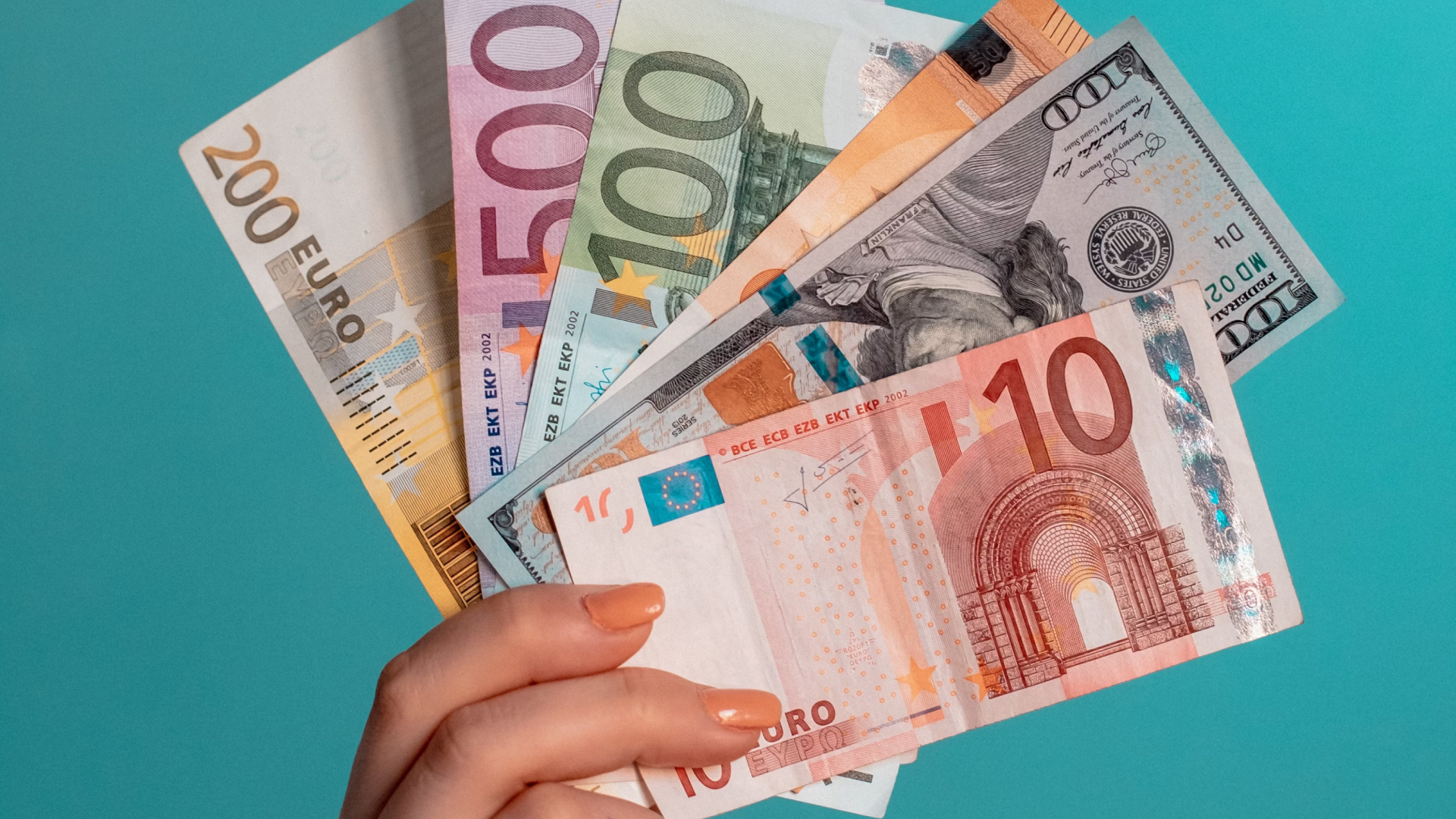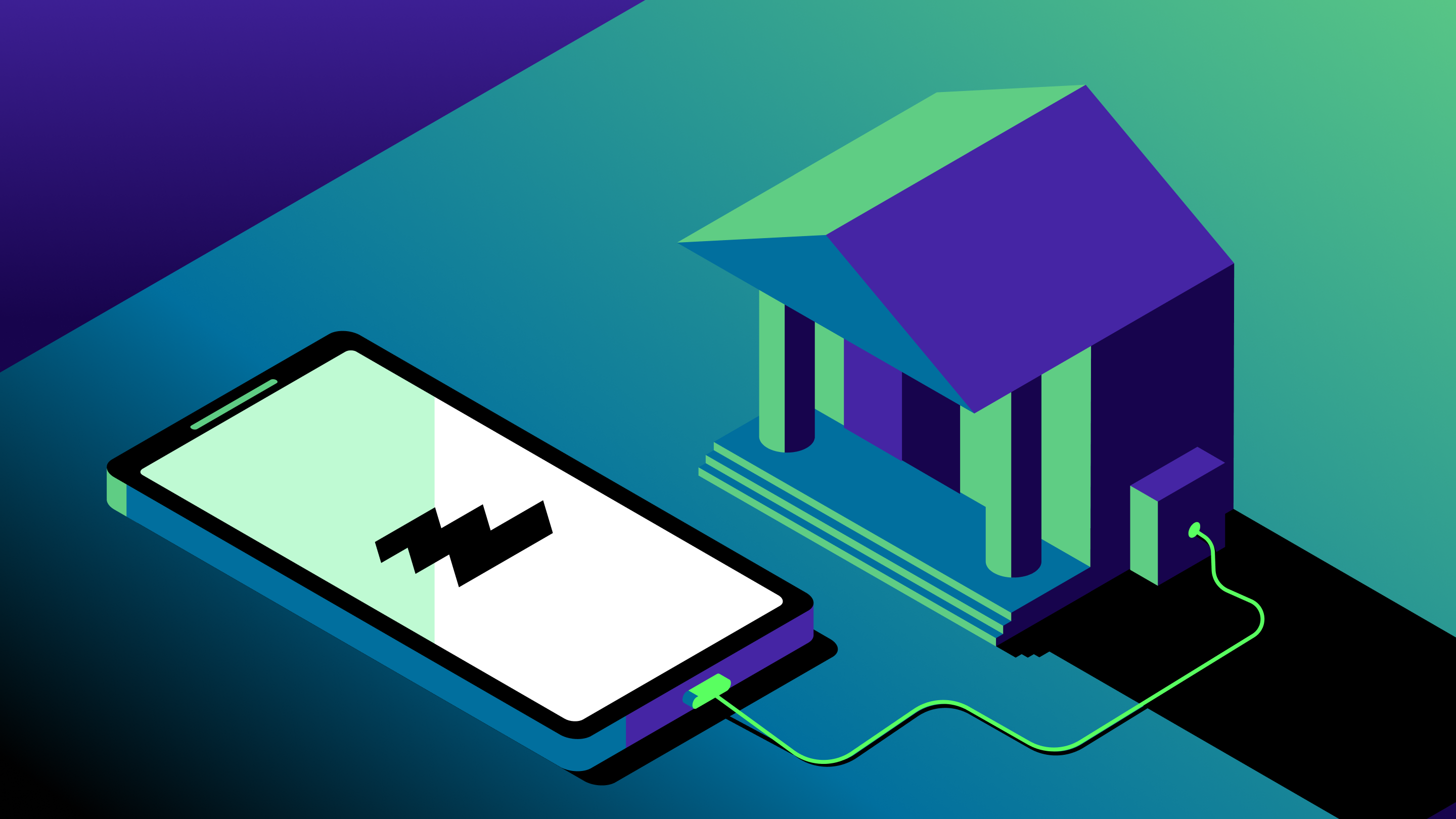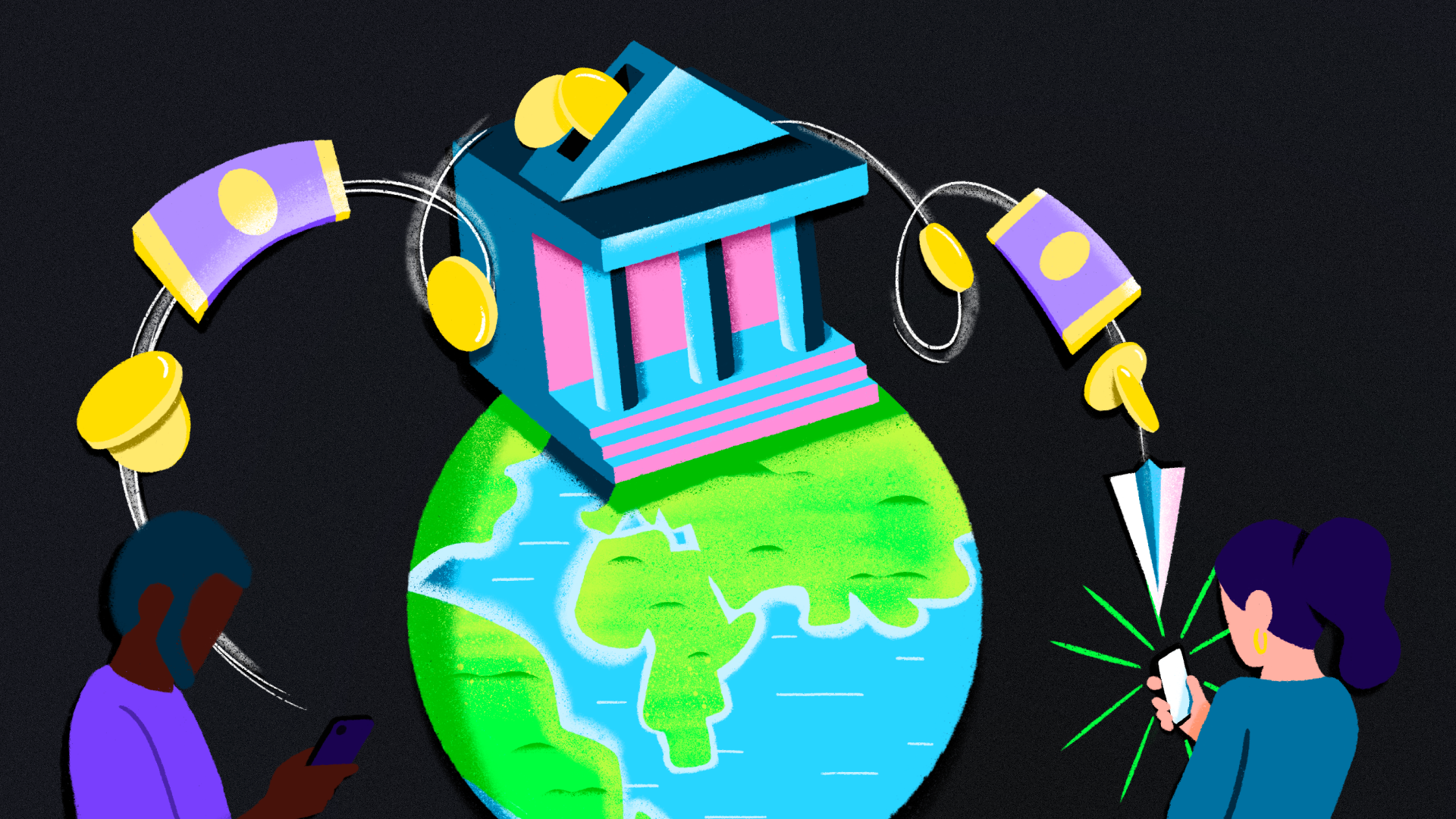Your holiday spending money might not feel like big bucks. But when you travel abroad and a country has a currency you have to convert to, you’ve just participated in the largest financial market in the world* – the foreign exchange market.
Sometimes shortened as ‘forex’ or ‘FX’, the foreign exchange market is a network of banks, financial institutions, corporations, governments, and individual traders who buy and sell currencies. The FX market operates 24 hours a day, five days a week, spanning major financial centres worldwide, including London, New York, Tokyo, and Sydney. It serves as the backbone of international trade and investment, facilitating the conversion of one currency into another based on exchange rates.
What is an exchange rate?
An exchange rate represents the value of one currency relative to another and determines how much of one currency you need to buy another. Exchange rates fluctuate continuously due to a multitude of factors, including interest rates, inflation, economic growth, geopolitical stability, and central bank policies.
In a floating exchange rate system, exchange rates are determined by market forces of supply and demand. However, in some cases, central banks may intervene in the FX market to stabilise or influence their currency's value.
What are currency pairs?
Currencies are always exchanged in pairs, where one currency is exchanged for another. Each currency pair is made up of a base currency and a quote currency. The exchange rate indicates how much of the quote currency is needed to purchase one unit of the base currency. For example, if you have euros (EUR) but want to buy dollars (USD) you need to find someone who is selling USD and wants to buy EUR. The euros would be the base currency, with dollars as the quote currency.
There is risk when you exchange currencies, as the rates change constantly. The differences mean that your money can be worth more or less depending on what the exchange rate is.
Let’s say that you have 100 EUR and want to exchange it to USD for your holiday, and the exchange rate is 1 EUR = 1.1 USD (or 1 USD = 0.9 EUR)**. You’ll receive 110 USD.
As exchange rates are always fluctuating, you might not get the same rate if you come to convert your money back after your trip.
For example, let’s now say the exchange rate has changed to 1 EUR = 1.2 USD (or 1 USD = 0.8333 EUR)**. If you were to convert that same 110 USD back, you’d be left with 91.67 EUR — less than your original amount!
Navigating FX with Zing
If you use Zing, you’re perfectly placed to take on the FX market.
Hold money in 20+ currencies
You can open Zing wallets in more than 20 currencies so you can hold, spend and send in those currencies.
Currency calculator
Get real-time exchange rates so you can monitor currency pairs and convert money with confidence. You can also customise the currency pairs you want to keep track of in the Zing app, so you’re always in the know.
Fees
With Zing, you get zero transfer fees on outgoing international payments and consistently low 0.2% currency conversion fees on all currencies, transaction amounts, and days of the week.
Understanding the basics of foreign exchange markets is crucial for anyone who moves their money internationally. By grasping the fundamentals of how currencies are traded and exchange rates are determined, individuals and businesses can make informed decisions and navigate the complexities of the global economy more effectively. This information does not consider your particular circumstances and does not constitute personal advice. Please seek your own advice before making any financial transactions. *Investopedia, ‘Forex: World's Biggest Market a Relative Newcomer’ Jan 2022. ** Exchange rate for illustrative purposes only.






